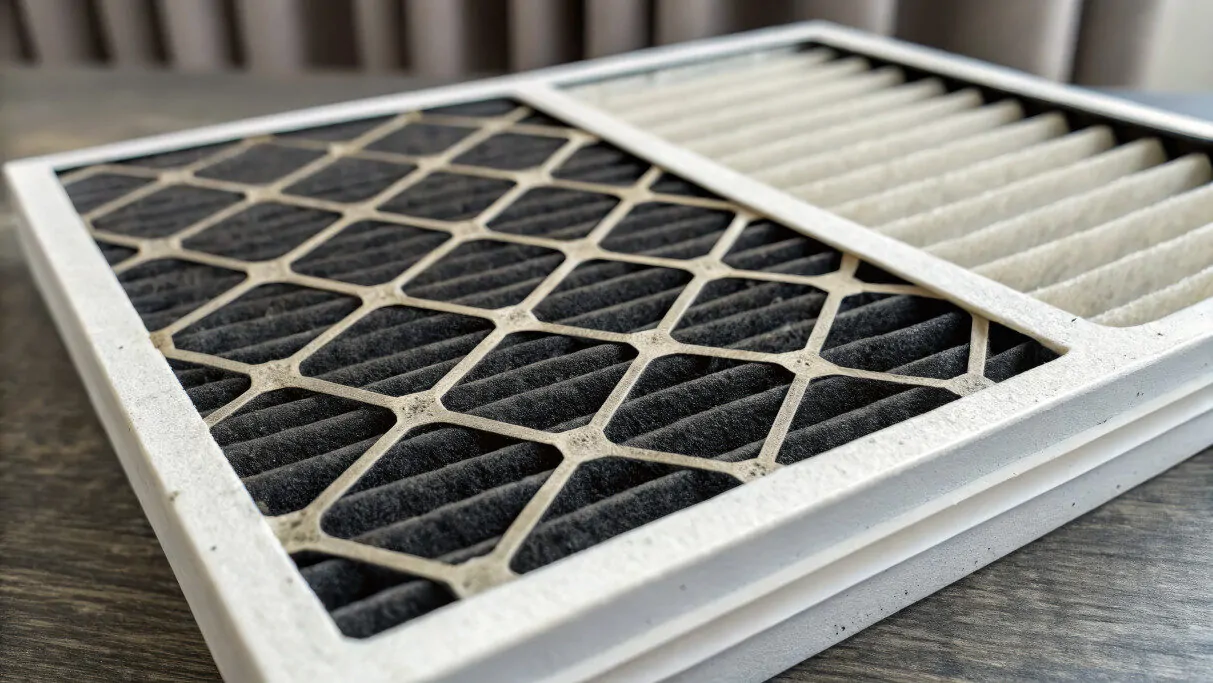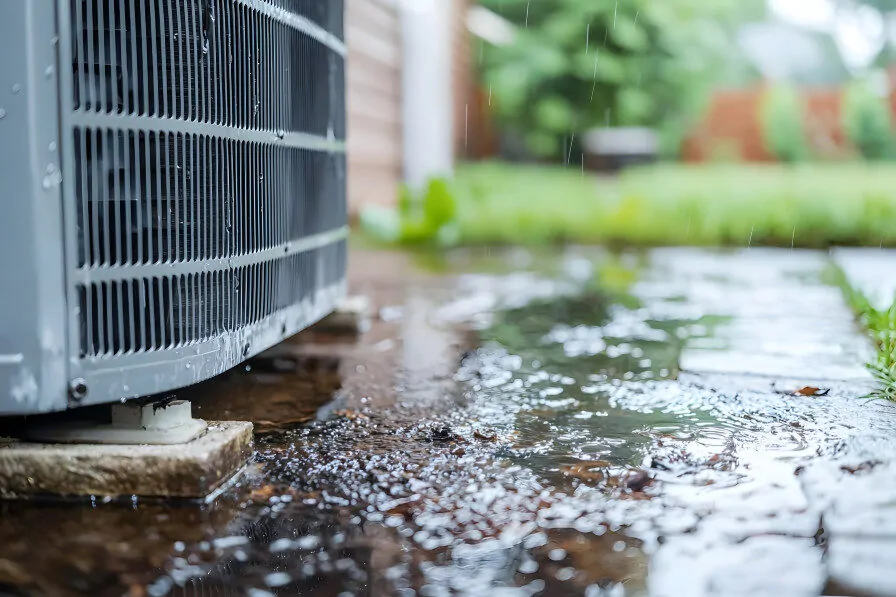HVAC Tips for Monsoon Season: What Every Phoenix Homeowner Should Know
The monsoon season in Phoenix typically runs from mid-June to late September, bringing a much-needed break from the desert heat—but also ushering in high humidity, dust storms, lightning, and heavy rainfall. Storms like these can be intense and occasionally risky, but they also bring a special set of challenges for your HVAC system.
If you live in Phoenix, here’s what you should keep in mind to ensure your HVAC stays efficient, safe, and dependable throughout the monsoon season.
1. Protect Outdoor HVAC Units from Debris and Flooding
During monsoon season, high winds and sudden downpours can cause damage to your outdoor condenser or heat pump units.
What You Can Do:
- Clear the area around your unit: Trim back plants and trees, and remove loose items that could fly into the system.
- Ensure the unit is on a slightly elevated concrete slab to prevent water pooling.
- Avoid covering the unit unless using a weather-approved cover recommended by your HVAC technician.
Tip: After a storm, inspect your outdoor unit for leaves, sticks, or signs of impact damage.
2. Replace or Clean Air Filters More Frequently
The dust and allergens brought in by monsoons can quickly clog your filters, especially after a dust storm has passed.
Why It Matters:
- Dirty filters restrict airflow, making your system work harder.
- Clogged filters reduce indoor air quality, which is especially harmful during allergy season.
Recommendation: Check filters every 2 weeks during monsoon season and replace them as needed (usually every 30 days).
3. Seal Leaks and Insulate Properly
Monsoon humidity can enter your home through gaps in windows, doors, and ducts, causing your HVAC system to fight harder to cool and dehumidify the air.
What to Inspect:
- Weatherstripping around doors and windows
- Attic and wall insulation
- Ductwork connections and joints
Proper sealing not only helps maintain comfort but also protects your home from mold caused by unwanted moisture.
4. Use a Dehumidifier for Better Comfort and Efficiency
During Phoenix monsoons, humidity can soar to 40–60% or more, making the heat feel even more intense. Your air conditioner might struggle to keep up with the extra moisture on its own.
Solution:
- Portable or whole-home dehumidifiers help remove excess humidity.
- Lower humidity reduces the strain on your AC, making your home feel cooler without lowering the thermostat setting.
5. Check and Protect Electrical Components
Monsoon storms often bring power surges and lightning strikes, which can damage HVAC systems and other home appliances.
Protective Measures:
- Install surge protectors for your HVAC system and major appliances to protect them from power surges.
- Use a whole-home surge protector for optimal protection.
- After an outage or power surge, wait 5–10 minutes before restarting your HVAC to avoid compressor damage.
If you suspect damage, call a professional HVAC technician before turning the system back on.
6. Keep Condensation Drains Clear
When humidity is high, your HVAC system produces extra condensation. If the drain line gets clogged, that moisture can build up, causing water damage or even forcing the system to shut down.
Maintenance Tip:
- Regularly flush the condensate line with a vinegar or bleach solution.
- Have a technician inspect for clogs during your seasonal maintenance.
Look for signs of water near your indoor air handler or unexplained AC shutdowns—these may indicate drainage issues.
7. Install or Upgrade Air Purification Systems
Dust storms carry fine particulate matter that can circulate through your HVAC system and settle inside your home.
Solution:
- Upgrade to a HEPA filter or electrostatic air filter.
- Consider a UV light purifier or air scrubber to kill bacteria, mold spores, and viruses.
Cleaner air means fewer allergies, better health, and less strain on your HVAC system. 
8. Schedule a Monsoon Season HVAC Tune-Up
Getting a preventive maintenance check before or during monsoon season can help your system perform smoothly, even with the extra pressure from high humidity and debris.
What a Pro Will Do:
- Clean coils and drainage lines
- Check refrigerant levels
- Inspect electrical components for weather damage
- Assess overall system performance
This seasonal tune-up is a smart investment—especially in Arizona’s extreme climate.
9. Use a Smart Thermostat for Better Humidity Control
Smart thermostats, such as Nest, Ecobee, or Honeywell, allow you to control both temperature and humidity, which is especially useful during the monsoon season.
Features to Look For:
- Remote access and control
- Humidity sensors
- Auto-scheduling based on weather patterns
- Energy usage reports
By automatically adjusting to muggy conditions, a smart thermostat can enhance comfort and lower energy bills.
10. Watch for Mold and Mildew
When humidity stays high, even briefly, there’s a risk of mold growth—especially around vents, in the ductwork, and near the evaporator coils.
Signs of Trouble:
- Musty odors
- Visible mold around vents or the ceiling
- Allergy flare-ups indoors
Professional duct cleaning and UV purification systems can help address and prevent these problems.
Conclusion: Stay Cool and Protected Through the Storm
The monsoon season might offer a break from the blazing desert heat, but it also creates specific challenges for HVAC systems in Phoenix. By staying ahead with these maintenance tips, you can:
- Protect your system from storm damage
- Improve indoor air quality and comfort
- Reduce the risk of costly repairs
- Extend the life of your HVAC equipment
Do you need a professional HVAC tune-up or air quality solution for the upcoming monsoon season?
Contact Canilu Air today! Our team of licensed Phoenix HVAC technicians is here to help you weather the storm in comfort and safety. Schedule your appointment now!


